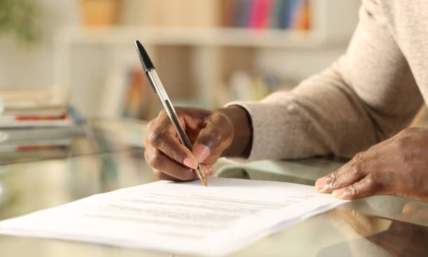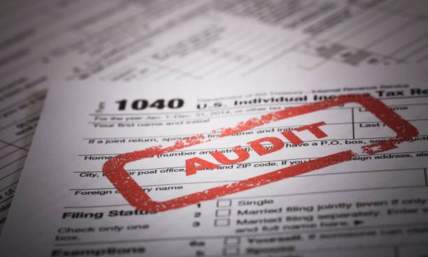Why Did My Credit Score Drop Off After Paying Off Debt?
One of the key steps in building wealth is paying off any debts that you have. Debt isn’t a good thing, but it is a position that most people will find themselves in at some point in their life.
Without paying off that debt, it is impossible to grow your wealth. That is why a lot of people prioritize paying off things such as student loans, and car finance before they focus on building their net worth.
If you have recently paid off a large chunk of your debt, and now find yourself debt-free, you might be disheartened to find that this doesn’t reflect in your credit score. In fact, you will often find that your credit score drops after clearing debt. But, why does this happen?
In this guide, we’ll be taking a look at why your credit score will typically drop after you have paid off your debt. So, if you want to find out the reason behind this strange reaction, keep on reading.
Also read: Top 8 Best Ways To Make Money From Home
Why Did My Credit Score Drop Off After Paying Off Debt?
At some point in their life, most people will find themselves in debt. This might be debt that has occurred due to attending college and paying for student loans, or it could be debt associated with buying a car or a house. Either way, a lot of the time people will find themselves in debt for one reason or another.
Debt isn’t necessarily a bad thing. As long as you are paying off that debt on time, and you are not drowning in it, then it won’t necessarily have a negative impact on your credit score. But, if you fail to make loan repayments on time, or put yourself into a position where you are unable to pay off that debt, then it can have a massive negative effect on your credit score.
But, what a lot of financial advisors will not tell you is that your credit score will also drop when you pay off debt. This can seem like a strange thing to happen because paying off debt is a good thing, so why does this occur? Well, ultimately it is all to do with the credit that is available to you.
Believe it or not, if you have no debt or credit to your name, this can also negatively affect your credit score. That is because your credit score is affected by the credit available to you. If you do not own a credit card, then this will mean that you have zero credit available to you, and this can cause your credit score to be low. Likewise, if you pay off your debt, the credit available to you will decrease, your credit utilization will also decrease, and so your credit score will drop.
Your credit score may also drop immediately after paying off debt because this is a large financial transaction. It is common for your credit score to drop after large transactions because it is a big change. But don’t worry, your credit score will recover from this, and with your debt paid off it will go much higher than it was when you were still in debt.
Also read: Cost Of Living By State In USA

Does Your Credit Score Go Up If You Pay Off Debt?
Even though your credit score will typically drop immediately after paying off debt, it will not stay this way. For this reason, yes, your credit score will go up if you pay off your debt. It will not do so immediately, but once your credit score has recovered from the drop in credit utilization and available credit, it will bounce back. Usually it will bounce back by a significant amount, and you will notice a clear improvement in your credit score.
You will always notice an improvement in your credit score after your debts have been paid off. Once your credit score has recovered from the sudden change, you will notice an increase in your credit score, even if the amount of credit that you were using was only small. But, the biggest improvement in your credit score will occur if the amount of credit that you were using was large.
Most of the time, your credit score will only improve if you pay off your entire debt. So, you may only notice an improvement in your credit score if you pay off your entire student loan debt, or everything that was on your credit card. For this reason, you typically won’t see an improvement if you pay off your debt by simply making the necessary monthly payments. In order to see a big improvement, you will either have to pay off the whole of your debt, or eliminate one source of credit. Otherwise, you won’t see an improvement in your credit score.
Also read: 5 Things To Consider When Buying A House
How Long After Paying Off Debt Does Your Credit Score Change?
Typically, your credit score will improve once you pay off debt, but it is important to note that this is not guaranteed. After all, your credit score and report is totally unique to you and your situation. But, most of the time your credit score will improve. However, as we have said, this will not happen immediately. In fact, it is common for you to initially see a drop in your credit score before it improves.
With every financial transaction that you make, there is a delay in that transaction showing on your credit report. So, you will not see the positive effects right away. Instead, it will usually take between 30 and 45 days for your credit score to improve as a result of paying off your debt. But, it could take more time depending on the credit bureau that you use for monitoring your credit score.
So, it is important not to be disheartened if your credit score does not improve immediately. It is very rare for this to happen. So, be patient, and you should see an improvement within the next month or two.
Also read: 12 Best Finance Podcasts For Your Savings

Should You Pay Off Debt Quickly or Slowly?
While it is not always possible, in an ideal world you should pay off your debt quickly. This sudden change in available credit and utilization can have an immediate negative impact on your credit score, but that will quickly recover. Once your debt has been paid off, your credit score will improve, and it will do so dramatically if you wipe out your debt entirely.
But, this isn’t the only reason why you should aim to be aggressive with paying off your debts. Loans, and debts, typically have fairly high interest rates associated with them. This means that you will end up paying a lot of money on top of what you borrowed when you are repaying your debt. Paying off your debt aggressively means that you will pay less in interest, so you will end up losing less money while repaying your debt.
Of course, paying off your debt aggressively isn’t always possible. But, where you can, we would recommend paying off your debt quickly. Especially if the amount that you owe is large.
Also read: 7 Best Ways To Invest Money Wisely
Summary
In short, your credit score will often drop immediately after paying off debt. This is because you have reduced your credit utilization, and as a result, your available credit will typically reduce too. But, your credit score will recover from this, and it will usually do so within 30 to 45 days. After this, you will often notice that your credit score has improved as a result of you paying off your debts. This is why a lot of financial advisors will recommend paying off debt quickly and aggressively where possible.
While on the subject of your finances it is vital that your pay stubs are also in order. Our paystub generator will make sure that they are.
















